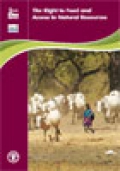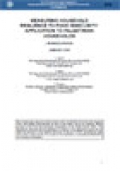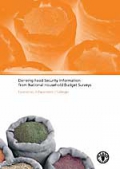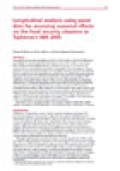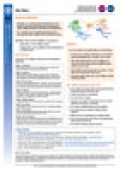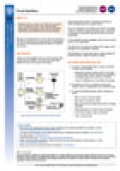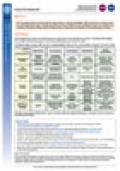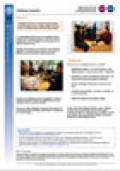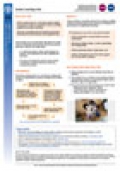Publications
Publication series
Latest publications
Country case study, 2009
Sixty years after the first affirmation of the right to food, much remains to be done to make this a reality. In 2006, FAO’s State of Food Insecurity in the World report estimated the number...
Available in:English
Country case study, 2009
The concept of resilience has recently been introduced into food security literature. It aims to measure households’ capability to absorb the negative effects of unpredictable shocks, as a legitimate component of vulnerability analysis. The definition...
Available in:English
Experiences, achievements, challenges
Book/book chapter, 2008
The introductory paper in Part 1 summarizes the efforts and lessons learned from experiences in participating countries to improve food security statistics. Part 2 deals with food security estimates performed at national and sub-national levels...
Available in:English
Country case study, 2008
The Tajikistan Household Budget Survey (HBS) has the particular characteristic of collecting expenditure and income data from the same households over a long period. The longitudinal survey design accounts for all variations, including seasonal effects,...
Available in:English
ESA Working Paper 08-09
Working paper, 2008
Rural agriculture uses more than one-third of the earth’s land and employs more than 40% of the population, a figure that approaches 75% in developing countries. As a result, rural demographic change is of vital...
Available in:English
Manual/guidelines, 2008
Electronic mail, or e-mail, is one of the most commonly used communication tools in the modern business environment, increasing the speed and ease with which information can be shared by users across the globe.
Available in:English
Manual/guidelines, 2008
This tool enables teams to work through five stages towards a 'shared responsibility'. Either face-to-face or virtually, teams can go through the five stages assessing where they lie in terms of different areas including atmosphere...
Available in:English
Manual/guidelines, 2008
A Challenge Session is a structured problem-solving framework which aims at creating changes in the way groups or individuals think about and solve problems.
Available in:English
Manual/guidelines, 2008
Action Learning Sets are a structured method enabling small groups to address complicated issues by meeting regularly and working collectively. This tool is especially geared to learning and personal development at the professional and managerial...
Available in:English




